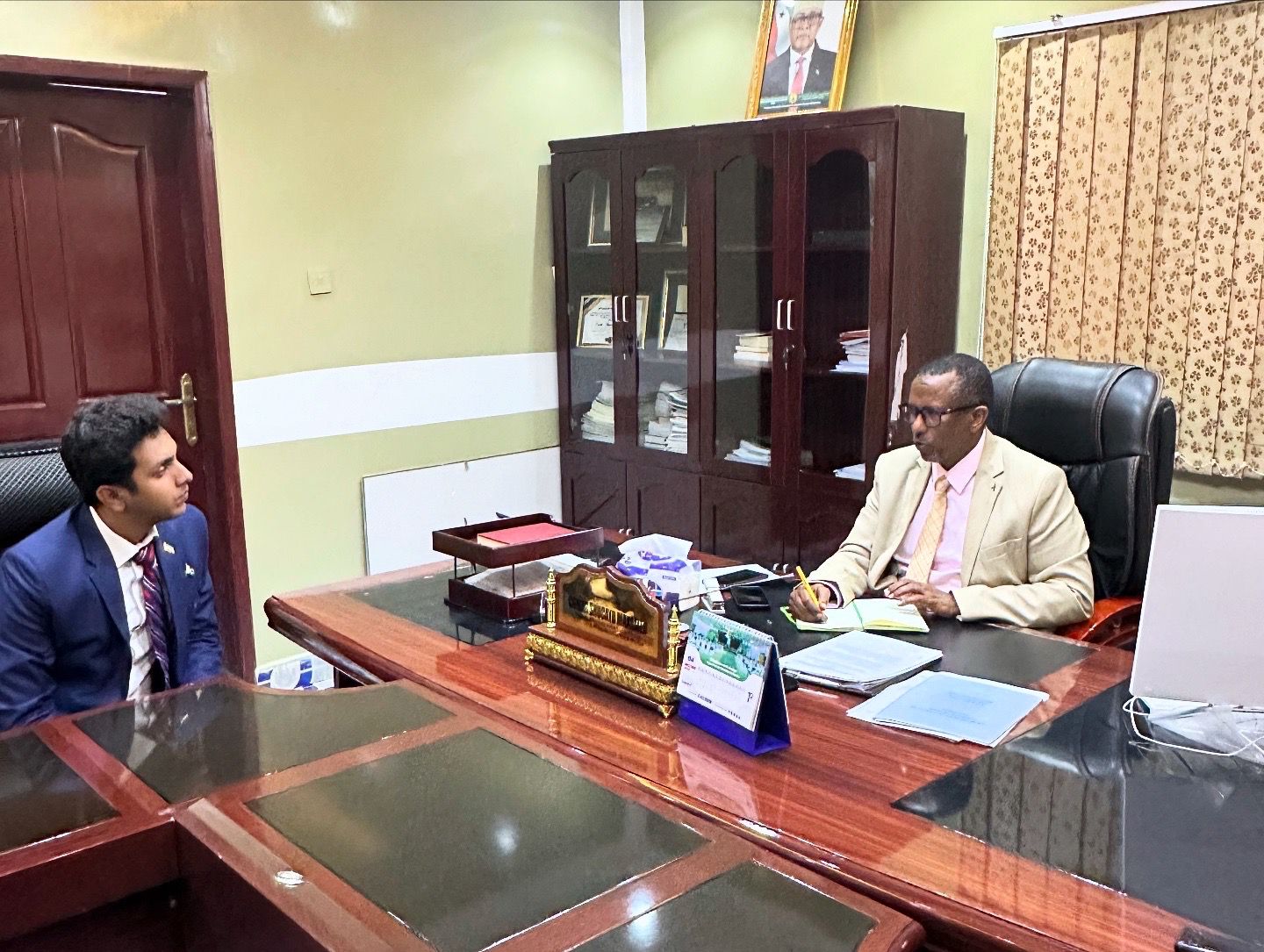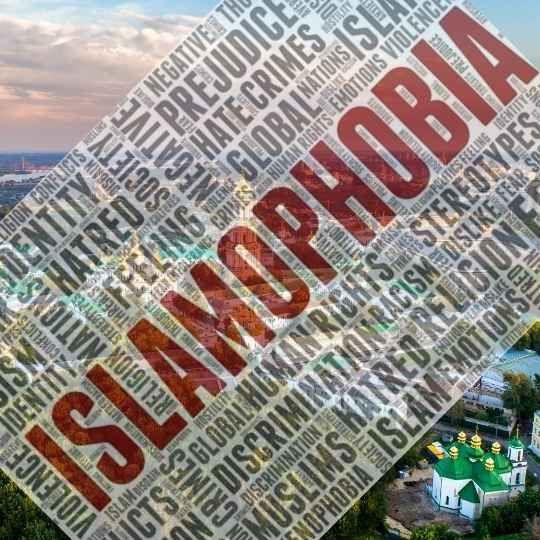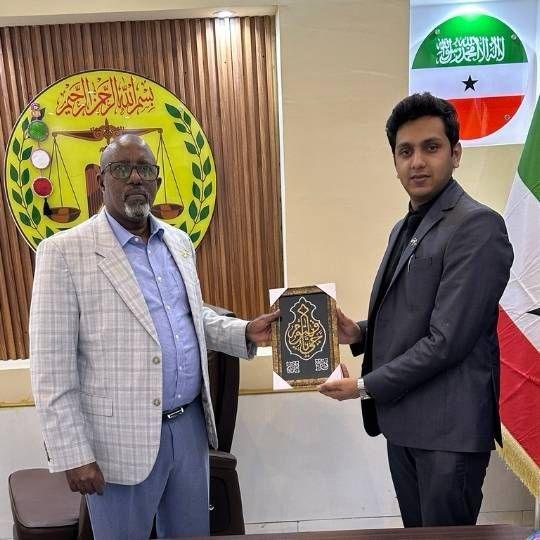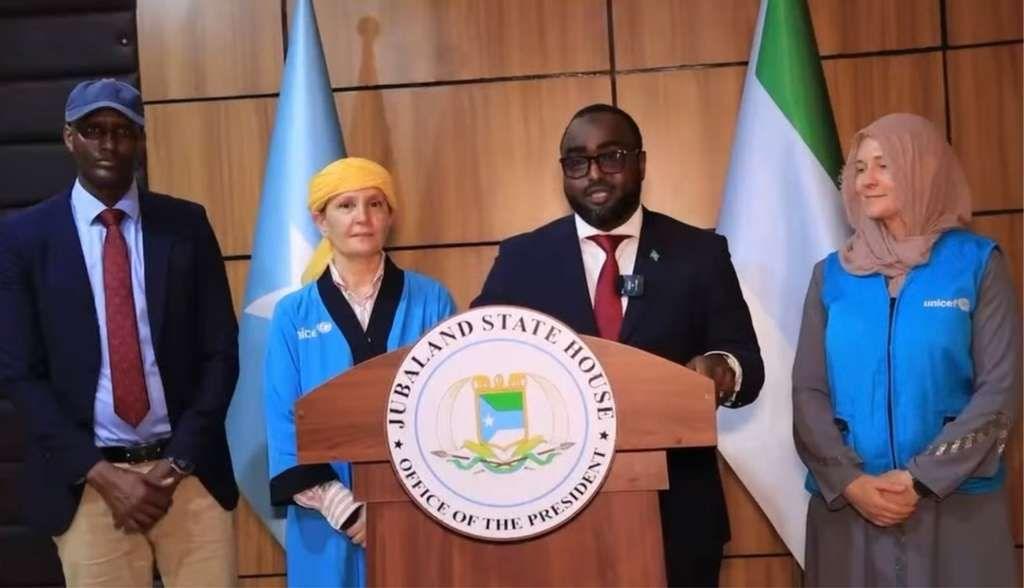Somaliland and open, untapped and less competitive market for the World
By Abdul Rafay Afzal (Editor in Chief – The Advocate Post)
In an exclusive Interview with THE ADVOCATE POST by Abdul Rafay Afzal (Editor in Chief) with H.E Cumar Shucayb (Minister of Livestock, Fisheries and Rural Development, Somaliland) during his official visit to Somaliland, in which he explained the functioning of the ministry, areas of investment in the sectors of Livestock, Fisheries. How Investment in certain areas can be very beneficial for foreign investors in this new market and gateway to Central Africa and beyond. Apart from that other areas have been touched as well.
Q1: Could you begin by explaining the role of your ministry and its contribution to Somaliland’s economy?
Our ministry covers three vital areas: livestock, fisheries, and rural development. Livestock is by far the largest contributor to Somaliland’s economy, both in terms of GDP and export revenue. Every year, millions of sheep, goats, and camels are exported—mainly to the Gulf region, especially Saudi Arabia. Fisheries is still underdeveloped, despite our 850 km coastline along the Gulf of Aden, which is rich in marine resources. Rural development ensures that our pastoral and coastal communities are supported with infrastructure, education, and services, because they form the backbone of these sectors.
Q2: Livestock is often described as the backbone of Somaliland’s economy. Why is it so important, and how do you see investment opportunities here?
Livestock provides income for the majority of our rural population and makes up around 60–65% of our exports. Somaliland’s advantage is that our livestock is raised traditionally — no artificial hormones or chemicals, just open grazing. This makes our animals naturally organic, which is a growing demand in global markets.
The key opportunity is in value addition. Right now, most animals are exported live. If investors establish modern meat processing and packaging facilities, we can move into processed exports, which brings higher revenue and creates jobs. This shift from live exports to processed meat could be transformative for both the economy and investors.
Q3: What about the fisheries sector — why do you call it an underutilized opportunity?
Our coastline is among the longest in the region and has rich fishing grounds, but today we are only utilizing a small percentage of that potential. Unlike Somali waters, which have had piracy and security concerns, Somaliland waters are relatively safe and open for trade.
There is demand both regionally and globally for seafood, and investors can enter areas such as commercial fishing, fish processing, cold storage, and export logistics. This sector could become the “next big thing” for Somaliland if developed responsibly.
Q4: Investors are often cautious about entering new markets. What makes Somaliland a credible place to invest?
We are realistic: challenges exist, such as infrastructure gaps, limited recognition, and regulatory improvements still needed. But at the same time, Somaliland is stable, has democratic institutions, and is strategically located as a trade hub.
With Berbera Port now modernized through DP World and Ethiopia’s involvement, we have a direct connection to Gulf and East African markets. For investors, this means efficient export routes. Our government also offers long-term land leases, customs facilitation, and in some cases, tax incentives for priority projects.
Q5: Can you give a concrete example of how a new investment would benefit both Somaliland and the investor?
Yes. A medium-sized even full stack but of international standards meat processing plant could handle tens of thousands of animals annually. Instead of selling live goats, processed and packaged meat can generate far higher margins per unit. This benefits pastoralists with better prices, creates jobs in processing and logistics, and gives the investor steady export markets in the Gulf and beyond.
The same is true for fisheries: with proper cold storage and packaging facilities, Somaliland could supply high-quality fish to Gulf, Europe, Central African markets, where demand is growing.
Q6: How do you ensure sustainability — both environmental and economic?
That is critical. For livestock, we are working on better grazing management and water resource development to avoid overgrazing. For fisheries, we are developing licensing systems and marine protection zones to prevent overfishing. We want investors who are committed to long-term partnerships, not just short-term exploitation.
Q7: What steps is the ministry taking to improve animal health certification and veterinary services to meet international export standards?
This is a top priority. We are improving veterinary services, quarantine facilities, and disease surveillance to ensure our livestock meets international health and safety standards. We are also working with partners to introduce modern certification systems so that Somaliland’s exports are recognized as reliable and safe.
At the same time, we are open to international cooperation in this field, including with Pakistan. Pakistan has strong expertise in veterinary sciences, dairy development, and meat processing. We welcome partnerships that can bring knowledge exchange, training programs, and joint ventures to enhance Somaliland’s livestock industry.
Q8: What legal protections do foreign investors have in Somaliland, especially regarding property rights and dispute resolution?
We understand that investors need certainty. Somaliland has Investment Laws and relevant departments and ministry for trade and investment as well that provides guarantees for foreign investors, including the right to repatriate profits and protection against expropriation. Long-term land leases are available for industrial projects, and our courts handle commercial disputes. We also encourage arbitration mechanisms where needed, to ensure fair resolution. While we continue to strengthen our legal framework, investors can be confident that Somaliland is committed to protecting their rights.
Q9: How does Somaliland balance traditional nomadic lifestyles with modernization and industrial investment?
This balance is very important. The nomadic lifestyle is part of our identity and culture, and it sustains millions of people. At the same time, modernization is necessary to create jobs and add value to our natural resources. Our approach is to integrate both: for example, processing plants will not replace pastoralists, but instead create higher demand for their animals at better prices. Similarly, in fisheries, industrial investment will work alongside artisanal fishermen.
In short, we are modernizing without abandoning our traditions — ensuring that the benefits of new investment flow directly to the pastoral and fishing communities who are at the heart of our economy.
Q.10 How do you see the role of regional partners like Saudi Arabia, the UAE, and Ethiopia, and how open is Somaliland to exploring cooperation with new partners such as Pakistan, other Gulf states, and countries like Kenya?
Regional partners are vital for Somaliland’s agricultural economy. Saudi Arabia remains our largest livestock market, especially during the Hajj season. The UAE has shown confidence by investing in Berbera Port and related infrastructure, which strengthens our export capacity. Ethiopia is both a market and a transit partner, particularly with the Berbera Corridor project connecting us to the Ethiopian highlands.
At the same time, we are very open to building new partnerships. Pakistan, for example, has strong expertise in meat processing, dairy development, and veterinary services, and we see great potential for cooperation in technology transfer and joint ventures. Other Gulf countries are natural partners for both livestock and fisheries, given their proximity and demand for high-quality, halal-certified products.
We also see opportunities with East African neighbors such as Kenya, which already has an advanced dairy and livestock industry. Cooperation can bring mutual benefits — from sharing knowledge to opening new regional markets.
Q11: Last question: what is your message to international investors and partners reading this interview?
Somaliland is open for business. We offer organic livestock, untapped fisheries, and a strategic location at the Horn of Africa. We are looking for serious partners who can bring technology, knowledge, and investment. The market is not saturated — the opportunities are real. I invite investors to visit, see the potential for themselves, and work with us in a cooperative spirit.
Editor’s Insight:
Somaliland’s economy is deeply tied to livestock, which makes up the majority of exports, while fisheries and processed meat remain an underdeveloped sector with high potential. The government’s priority is clear: move from raw exports to value-added products such as processed meat and packaged fish.
With Berbera Port now expanded and the Berbera Corridor linking to Ethiopia, Somaliland positions itself as a trade gateway between Africa and the Gulf. Traditional partners like Saudi Arabia and the UAE remain central, but there is growing openness to new cooperation with Pakistan, other Gulf states, and East African neighbors.
The challenge will be balancing modernization with pastoral and artisanal traditions. If achieved, Somaliland could become one of the region’s strongest agricultural hubs. For investors, the message is simple: this is still a first-mover market with real opportunities and limited competition.






